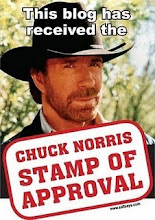I've been reflecting lately (for a while now) on the idea of love and friendship. Quite simply how very long it takes to get to know someone. Last month I helped facilitate a two day mini-conference on the topic of Love and Philosophy. One of my friends, Noah, visited for the conference, and talked about distinguishing feeling, desire, and love from each other as three different sorts of things. Any of us often talk as if love is simply a matter of feeling or desire.
For the last year I've been teaching Introduction to Ethics, and I teach the course as an entire semester of thinking through how we have ethical relationships with other people, be they friendships, romantic interactions, or ordering up at the coffee shop. I chose this kind of topic because it's one of the things I care the most about. If asked by someone "what is the meaning of life?" I'd confidently answer that the meaning of life is in the relationships we have with other people. To have a good life, then, depends on how we have those relationships with other people.
My daughter and I had a conversation recently about what it means to love someone, or to be in love with someone. (Also, she had a birthday last month, by the way. So, I now have to call her "the 10 year old I live with.")
We talked over what it means to like someone. It turns out that it's easy for any of us to give a first answer of, quite simply, to like someone is to have feelings for them. But that's just it, saying we like someone is to say that we have feelings directed at or towards a person. In that sense, at these early stages, the feelings we have aren't really about that other person. They're about us getting triggered by what we see and like in another person. We speak as though our liking someone is about them, when really it is about what we ourselves like, that we happen to see in someone else. Our feelings have been activated, so to speak. But the feelings belong to us, even as they are associated with another person.
We talked over what it means to want to "date" someone. We decided that when we like someone (as described above), sometimes the feelings we have trigger other desires, like the desire to spend more time with a person. This often happens so quickly we don't think to separate the idea of having feelings for someone, and desiring something with them. It often appears that the two are the same thing. But it can still make sense to talk about having feelings for someone, on the one hand, and desiring something with them, on the other.
So, when we have feelings for someone, it can often trigger other desires in us. Sometimes we want to be like that person we have feelings for. Sometimes we want to spend more time with them. In our society, one obvious way to spend more time with someone is to do what we call "dating" them. We do organized activities with them, and call that time and activity a date. The point here though, is that we have feelings about someone else, and then sometimes we desire things with or about them--sometimes we want to be like them; sometimes we want to be around them. These desires can sometimes then lead to us acting on our desires--that is really trying to be more like the other person, or really trying to spend more time with the other person. It seems though, that our desire for such things really is still just about us--what we ourselves want--rather than yet genuinely about the other person. We want things with the other person, or from the other person, but we're still wanting things for ourselves, rather than for who they are and what is good for them.
So, we can have feelings for someone (this is true of friendship too, right? We can think someone is cool), and we can have desires for someone (like wanting to be their friend, or wanting to date them). But, when we break things down in such a way, it seems clear that loving someone or being in love with someone can't simply be a matter of having feeling or desiring someone. Love or being in love must be something more, something about them.
The ten year old and I talked about what it would mean to have that extra "something about them." When we come to understand that feelings we have for someone, at these early stages at least, are really about ourselves, and desiring to have more time with someone, too, turns out to be about what we ourselves want, and so also, ultimately, about ourselves, then it turns out claiming to be in love with someone else couldn't mean just having feelings for them and desiring them. That wouldn't be being in love with them at all, because we've just said all that stuff really turns out just to be about ourselves. Being in love with someone else, then, would have to be something about them. It would have to be more than just having feelings and desires.
I think this is an important point to make. Because we often having great swelling feelings and desires for people we know, but then we talk about that as what it means to be in love with someone else. But also, for many of us, we expect that our having feelings for someone else, or our wanting things with or from someone else, means that they should do those things for us, or that they should have more feelings for us too. When we realize though that being in love can't amount to just my having feelings and desires for that other person, we can realize too that we often do make the mistake of thinking that is all that being in love depends on. But, if that's all I actually mean when I've claimed I'm in love, the other person couldn't have any obligation to me at all. All I've done, after all, is say something about myself--that I have all these feelings and desires. I shouldn't expect that other person to have feeling for me too, just because I do, and I shouldn't be surprised if they don't. All I've really done is assert something about myself, not about them.
Based on any of this, what would it mean, then, to be in love with someone, or even to just genuinely love them? The ten year old and I talked about this too. The simple first step is that loving someone, or being in love with them, would have to be genuinely asserting something about them. It would have to be more than just having feeling and desire for them. It would have to reflect something in the way we engage with them that shows we really are saying something about them, even while we may also have all these feelings and desires that are about us. The ten year old and I, at least in the conversation we had recently, decided that based on all of this, love could be something like a fancy version of having plans with someone.
The thing about having plans with someone is that it reflects two people deciding something together, even if it is just a simple something, like going to a movie later. The thing about making plans is that two people have now made their lives about each other--they've shaped a portion of how they spend their time, and as a result a portion of who they are, around another person. Making plans together means two people incorporating each other into each of their lives, both in the process of coming to plans together (figuring out a movie is what the two people want, and what movie, and when), and in the process of really living out those plans together too through the activity of doing what has been planned (like actually going to the movie).
Loving with someone, then, would be a step more than just making plans. It would be a kind of commitment to this co-creative engagement described above (of incorporating each other into both lives: of figuring out mutual desires, and choices, and mutual activities). It seems like this would work in stages too though. The first steps to actually making plans would be a phase of getting to know someone by involving your life with theirs--finding out what they like, what they're used to, and more. Then, if you make a kind of commitment to continue to do this with that person, it seems like that would be adequate to claiming you are friends with them. That is, you have an ongoing co-creative engagement. Love, then, would be an even further step. It would seem to come only after this commitment to continue to doing things with the person really had become what I'm calling here "co-creative." That is, love exists, so to speak, when two people are doing things in a way that is mutual and about each other; when the plan-making is happening not just because it is pleasant or useful to the two people but because it is really happening out of a kind of mutually creative act.
What do I mean by co-creative, or mutually creative? I mean quite simply that two people, for the sake of the other person too (not just for the sake of what each individually are used to, or comfortable with, or want, or feel) commit to make plans that are made together. That is, two people together get to discover who the other person is, what is good for them, how that works with what is good for themselves, and the two people change as they discover these things together. They trust enough to try what the other is used to. They trust enough to try things neither one is used to, and to try them together.
Love, then, would be having a commitment to another person that includes choosing to do things that are good for that other person, and that means who you are as a person will be changed. You will no longer just be doing what you are used to, or what you would automatically do for your own sake. You will also be doing what is good for the other person's sake. And, because you genuinely care for the other person, part of what you want is what is good for them. That means, that you will be changed as a person partially because you will care about things you didn't care about before--that is, you will care about the things that are good for the other person. In so doing, those things actually become good for you, by fulfilling what you care about in them. That other person will, then, in this complex way, become part of who you are.
Just to be clear, I talk about having care for the other person, but we cannot overlook how important it is to love one's self. I think you can only genuinely love someone else if you have this kind of love relationship with yourself too-- If you care about who you are, and recognize that it is partially through loving others that you are able to fulfill that care for yourself too.
If love is all of this, then being in love with someone would plausibly be loving someone (as described above) in a way that includes those feelings and desires mentioned earlier, and fuels them to continue in the swelling way mentioned before.
Williams James describes love as knowing (without even thinking about it anymore) how important that other person's life is. He says though we can only do that when we already know how important our own life is. He means this in no egotistical sense. He means we come to know ourselves and another in such a way that we know what they value, what they desire, what they wish to do, how they tend to respond to things, what is important to them, and we treat those things simply as important in themselves-- Because the person simply is important just by being who they are. Another person simply is utterly irreplaceable. They are the only ones that have lived and continue to live the lives they have. For James, loving someone means honestly living in communion with that unique existence of theirs. He describes this beautifully in his essay "What Makes a Life Significant."
What we discover from all of this is that the thing about a love relationship (whether it's a loving friendship, or a romantic love) is quite simply that it takes a lot of time. I don't mean "takes time" necessarily in that you must spend a huge bulk of any particular day together (though that might sometimes be part of it). But I do mean that it can't happen in something as quick as a week, for example. It could only happen over periods of time much longer than that--months, and years, and when we're lucky, decades. It's easy for any of us to want to hurry up and claim we love someone, or claim we're friends with someone. But, if what we really want is the genuine care entailed in what is being described above, then we have to recognize that it takes time to actually love someone, and to actually be friends with someone. Love and friendship simply couldn't come quickly. Feelings for love or friendship, desires for love and friendship could. But the actually lived process of love and friendship simply couldn't. The process of love and friendship, the commitment to those, are ways of engaging with other people that depend upon knowing those other people and being genuinely committed to who they are. It simply takes time to get to know each other.
Having feeling for a person that makes us want love or want friendship with them, simply isn't adequate to honestly claiming we really do love them, or really are their friend. We have to know each other better than that first. And we have to be willing to act on the commitment that love and friendship entail. Love and friendship, in other words, aren't things that simply come to us. We have to continue to make them happen by actively choosing and acting in ways that are based in making them happen, so to speak. It takes a long time to know each other, and it takes a steady willingness to get to know someone in the sort of involved way described above too. That might mean we can't claim as many friends or loved ones as we had thought previously that we could. And it might mean too that we have to think harder on what kind of friend, or partner we really are to others. That is, if we're not engaging with another person directly, and in a way that reflects something for them, then apparently we're not being a friend or lover at all. All of this also means though that the friendships we do genuinely have, and the commitments of love we make (friendship or romantic) really are rare and truly beautiful things that deserve to be celebrated.
To those of you with whom I'm lucky enough to share genuine friendship, I thank you. And I send you so much love, by which I mean: together we have changed each others lives. You have made me a new person, for which I am grateful. And, also, I am committed to continuing to get to know you so that I can better support and facilitate what is good for you, and to be changed because of it.
No one knows what the body can do. -Spinoza
Wednesday, November 11, 2009
Subscribe to:
Post Comments (Atom)













Elaine, seriously, did u read my post today?? How about we just insert yours into that spot on mine where I was wishing my parents had sat and chatted with me at that age! Loved loved LOVED this!
ReplyDeletehi kim! i hadn't to my daily blog read yet today, but i was looking forward to doing so after these vegan choco chip yum yum cookies i am in the middle of were done, and i could eat them while drinking (another) cup of coffee, and then read your loverly blog. i look forward to it. (also, feel free to insert whatever. i love your blog. a fun read!)
ReplyDeleteExcellent post, E. Lots to think about here. I especially like your description of making plans with someone.
ReplyDeleteWasn't the situation of making plans with your friends the example Shiloh used to talk about loving people in a non-tyrannical way? That seems very appropriate now, in light of what you've said here. Wish I'd seen that at the time.
ah! i'd forgotten shiloh's comment while writing this. yes, in response to a student question shiloh used the example of choosing a restaurant for dinner with someone. she didn't explicate it in the same way i do here, but the idea of making plans is common, and i think some of the point of the example is similar.
ReplyDeletethanks for reading, noah. i appreciate it.
Lucky ten-year old!
ReplyDeleteAnd lucky us that we have a philosopher in our lives who cares to examine the most important questions. (I spent an hour in a seminar two days ago participating in a discussion on the metaphysical preconditions for time travel. Time travel is cool, but...)
Obama said this, and I think it applies to love: "it's only when you hitch your wagon to something larger than yourself that you reach your true potential."
I think our commitments to each other hang on this idea of expanding into this bigger potential. With crashes and scabs and sometimes scars along the way. This is what I come back to again and again. Sometimes we need self-analysis to move past self again, but in the making of plans, a vision?
Another thought to chew on.
Many thanks!
Jeanne Amie
jeanne amie, you're wonderful. thank you.
ReplyDeletealso, you and christine and i have, hands down, the sexiest scars. they all come from loving hard and for fucking real.
As for this... "Sometimes we need self-analysis to move past self again, but in the making of plans, a vision?" yes. and i want to chew on it more too.
Looking forward to seeing you again, when we get to see each other again.
With love!
Elaine
...over double choco yum yums! YES!
ReplyDeletemuch love, ja